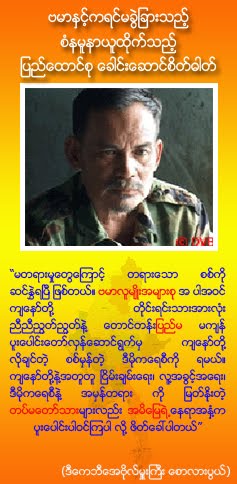
Daniel Shayesteh was not long graduated from the University of Tehran when on Nov. 4, 1979, 500 students siezed the American embassy in the capital of Iran.
He sympathized with their cause and indirectly supported it, but refrained from bullying the Americans. Not because it was wrong, but because he felt that westerners needed to be kept unaware of the deep hatred Muslims held for them. Mr. Shayesteh, 50, grew up in northern Iran, along the coast of the Caspian Sea. Once a Qur’anic teacher and scholar, Mr. Shayesteh earned a doctorate in international business in Turkey.
Now a Christian, converting after he fled Iran, Mr. Shayesteh travels the world decrying what he considers the dangers of Islam. Last Sunday, he spoke at Westgate Chapel Christian and Missionary Alliance in Toledo.
“Committed Muslims want [westerners] not to have knowledge of Islam,” he said in an interview. “Democracy is against the values of Islam. [Muslims] say that Allah is the ultimate value-maker; he already has a law and democratic law is not higher than Sharia, the law of Allah.”
Through the last half of the 1970s and into the early 1980s, Mr. Shayesteh was a member of a group called the Free Islamic Revolutionary Movement. They set about helping to oust the Shah of Iran and install the Islamic mullahs.
Once they succeeded, however, the new regime under the Ayatollah Ruhollah Khomeini turned and went after him.
Any Muslim who denies allegiance to Islam and its founder Mohammed can expect three outcomes: ostracism, imprisonment, or death, Mr. Shayesteh said.
“You do not have a right to reject Islam if you come from [an Islamic] family,” he said.
By 1980, Khomeini sat at the pinnacle of power in Iran. Mr. Shayesteh became the chief executive officer of a government department.
In 1981, he ran for a seat in the interim government’s Islamic Parliament.
That got him into hot water.
He won the election, but the clerics balked at giving the office to a secularist.
Three years later, he and four others were imprisoned and sentenced to death. Someone who worked in the high court office saw the order for Mr. Shayesteh’s death and interceded, but his fellow detainees were hanged.
When he was freed in 1985, Mr. Shayesteh said he was a persona non grata in Iran. He could not work, and tried but failed to flee to Turkey.
In 1988, he again attempted to leave the country but was blacklisted and had to relinquish his passport.
Still, he made it to the Turkish border and tried to cross. The border guards called for soldiers to arrest him, but when they failed to come after nearly three hours, the guards let him pass.
Several months later his wife, Mary, and three daughters joined him in Istanbul.
Mr. Shayesteh decided to go to a local Christian church, where a former business partner once visited, trying to locate him. That decision started him toward a life-changing break with Islam and conversion to Chrisitianity. In 1991, he moved his family to Australia where his wife also became a Christian.
Mr. Shayesteh taught business at the University of Technology at Sydney for eight years. Recently, however, he was fired when someone complained about his fervent Christianity.
Ultimately, the loss became an opportunity to begin a mission: teaching westerners the truth about Islam.
Contact M. Ferguson Tinsley at mtinsley@blocknewsalliance.org or 412-263-1455.










No comments:
Post a Comment